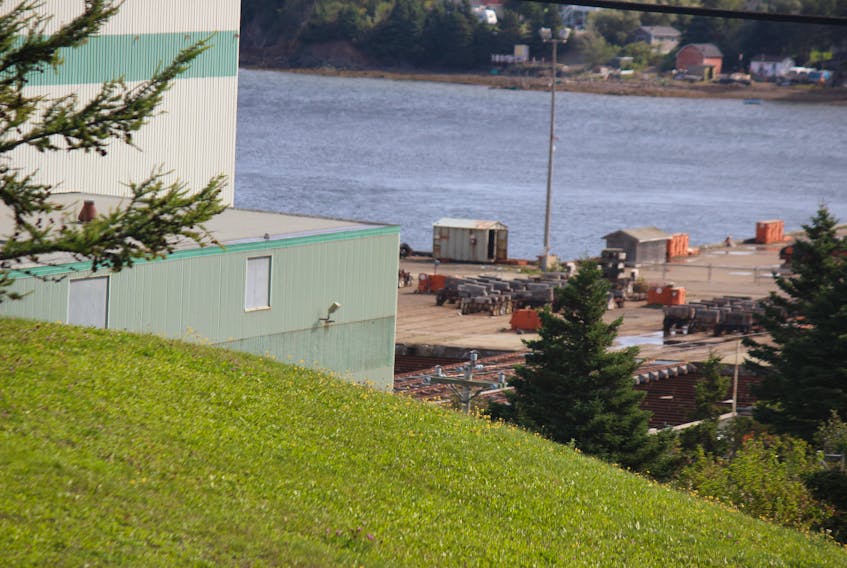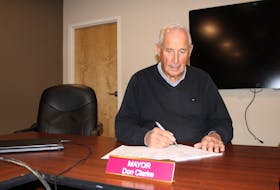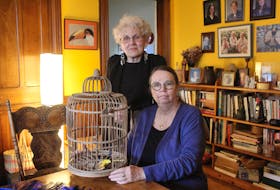MARYSTOWN, N.L. — In the winter of 2003, a reporter with The Telegram asked the Workplace Health and Safety Compensation Commission — currently called Workplace NL — for a cohort report from the University of Toronto about cancer rates among workers at the Marystown Shipyard.
Almost immediately, the agency went on the defensive.
“As there is no greater prevalence in the workers as opposed to the population (that would help his story) he will go to the union or someone else to refute the report,” a staff member speculated in an email exchange unveiled through an access-to-information request.
“Maybe he has contacts at (Memorial University) but he will most likely have to go to the U of T researchers to investigate that portion of the report,” came the reply. “There was a contract signed by them which, if I recall correctly, prevents them from discussing the research with anyone outside of our organization.”
It’s not unusual for communications staff to question a reporter’s motives, and vice versa. But the exchange seems to echo a pattern of evasiveness the Marystown Shipyard Families Alliance has seen before.

In fact, co-chairs Bernadine Bennett and Glenn Brown don’t think Workplace NL is the agency they should be dealing with. For 14 years, the alliance has contended the provincial government owes it to former shipyard workers and their families to properly investigate their exposure to a wide variety of toxic substances at the facility.
And they have the indemnification agreements to prove it.
When the Crown-run facility was finally sold to Friede Goldman in 1998, the company insisted on a clause that absolved it from any liability based on previous environmental damages. The same happened in 2003 when the facility was sold to Peter Kiewit and Sons.
Bennett and Brown have run up against a wall with Workplace NL.
The board has only approved one-quarter of more than 100 claims put forward by the alliance, and insists it can only deal with each claim on a “case-by-case basis.”
The alliance wants an intake clinic, and their demands are backed by at least two high-profile advocates — Opposition Leader Ches Crosbie and Toronto-based occupational disease expert Dr. Noel Kerin.
Peterborough precedent
Kerin says he got involved with the Marystown cause because it was a classic example of a dirty, post-war industry and closely resembled the plight of workers at a General Electric plant in Peterborough that he investigated in the mid-2000s.
Many of those workers were exposed to the same dozen or more carcinogens that Marystown workers were exposed to, and the families alliance has used Kerin’s report as a template for its own parallel account of toxic exposures. They also have testimonials from witnesses who say protective gear was still not used consistently long after occupational health and safety standards were introduced in 1988.
“The truth needs to be told,” Kerin said in a phone interview last week. “I don’t adjudicate. I’m not an advocate. My job is occupational medicine.”
He calls the U of T study “stupid.”
“Too many confounders,” he said. “It didn’t do anything for the discussion, really.”
He says the authors should not have used the already high provincial cancer rate as a baseline in comparing cancers among shipyard workers.
Despite that, the study does recommend further investigation beyond the study’s scope, as the latency period for mesothelioma — an aggressive cancer exclusively caused by asbestos exposure — can be as long as 40 years. It can manifest at first as a lesser ailment.
Workplace NL said this week officials are always open to considering further evidence, but have given no indication they’ve ever done so.
“We’re in the middle of a cluster,” Bennett said last week. “Since we came on board in 2006, there’s been 110 cases alone. And at that time we were into our 40-year latency period when you expect to see a cluster. What we expected to see is what happened.”
‘Trailing badly’
Kerin says this province should follow the lead of Ontario’s Workplace Safety and Insurance Board (WSIB), which last year commissioned Paul Demers to review the agency’s outdated policies on occupational disease.
Demers is director of the Occupational Cancer Research Centre (OCRC).
The OCRC estimated that approximately 3,000 Ontarians are diagnosed with cancer each year due to their work. However, only about 400 cancer claims are submitted each year to the WSIB, and approximately 170 of these receive compensation.
Some of Demers’ recommendations:
- Developing more policies to facilitate the recognition of cancers caused by well-established workplace carcinogens.
- Improving medical education on occupational cancer to increase recognition.
- Expanding scientific capacity and the ability to investigate occupational disease clusters.
‘Stuck in their ways’
An intake clinic would involve an orderly, publicized followup with workers to determine those who may be already affected by disease and those who may be at future risk.
Both Kerin and Crosbie say it’s the way to go and, last week, Crosbie confirmed Gerry Byrne, the minister responsible for Workplace NL, has agreed to meet with him about the matter.
It’s not the first time a minister has promised to intervene.
Kerin says compensation boards tend to trail “quite badly” behind the science when it comes to occupational disease.
Part of that, he said, is that staff become set in their ways.
“Some of the people who developed the policies are in love with them and they don’t want to change,” he said.
Adds Crosbie: “I think, like many aspects of government, they’re just stuck in their ways and they’re unwilling to look at new information.”
Kerin has nothing but praise for Bennett, who started the ball rolling after her father, a yard worker, died in 2003.
“Bernadine Bennett has been our Erin Brockovich,” he said. “Without her, nothing would have happened.”
Peter Jackson is a Local Journalism Initiative reporter covering health for The Telegram









